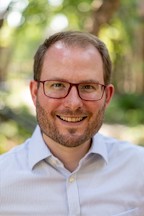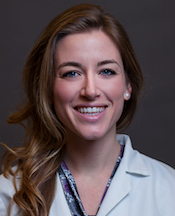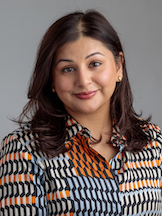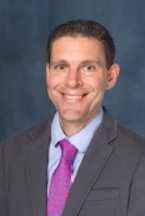iMpact Seminar
Join the monthly CLHSS seminar!
The iMpact seminar series takes place the first Tuesday of each month from 12-1pm CST. The purpose of this online seminar is to enrich those interested in advancing the work of learning health systems. Our focus is exploring the many facets and dimensions of impact that the ideas, technologies, and practices presented have on learning health systems.
Upcoming iMpact Seminars

Tiffani J Bright, PhD, ACMI
Co-Director, Center for Artificial Intelligence Research and Education
Assistant Professor, Department of Computational Biomedicine
Cedars-Sinai Medical Center
Abstract
Artificial Intelligence (AI) has the potential to revolutionize clinical practice by enhancing diagnostic accuracy, streamlining workflows, and improving patient outcomes. However, integrating AI into healthcare also raises critical ethical concerns, particularly around bias and fairness. This talk will explore how bias can manifest in AI systems, especially in clinical decision support tools and electronic health records. It will discuss the impact of such bias on clinical practice, strategies for mitigating bias, and the ethical principles that should guide the development and deployment of AI technologies in healthcare.
Becky Ford, PhD
Research Director, Health, Homelessness, & Criminal Justice Lab
Xin Piao, APRN, CNP
Nurse Practitioner, Hennepin County Medical Center
Sarah Lexcen, PA-C, MPH
Physician Assistant, Hennepin County Medical Center
Rajendu Srivastava, MD, MPH
Professor of Pediatrics, Division of Inpatient Medicine
University of Utah Health
Meera Viswanathan, PhD
Director
RTI-UNC EPC
Jennifer Lin, PhD
Pacific NW EPC Director
Kaiser Permanente Washington Health Research Institute
June 4 | Beyond the Norm: Human-Centered Design and the Power of Outliers
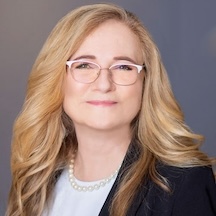
Jeanne-Marie Guise, MD, MPH, MBA
Director, Massachusetts Institute for Equity-focused Learning Health System Science
Director, Center for Learning Health Care Delivery, Beth Israel Deaconess Medical Center
Co-founder and co-Chair Executive Committee for the US Cochrane Network
Director, Cochrane US West
Beth Israel Deaconess Medical Center and Harvard Medical School
Abstract
Dr. Guise will present human centered design as a way to improve health care delivery from the ground up, by capturing insights from individuals. Realizing that the mean is rarely a good representation for all, she will talk about human centered design as a tool that learning health system scientists can use to bring voice to individuals, co-design to advance equity, and personalize healthcare delivery.
May 7 | Approaches to learning health system research: Case examples from two health systems
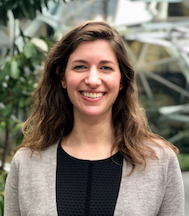
Debbie Pestka, PharmD, PhD
Health Services Researcher, Center for Learning Health System Sciences
Adjunct Assistant Professor, College of Pharmacy
University of Minnesota
Abstract
In this talk, Dr. Pestka will present the approaches two health systems have taken to conduct learning health system research.
April 2 | Got Community? Reflections on the Relevance of Community Engagement in Equitable Health Informatics and Data Science Innovations
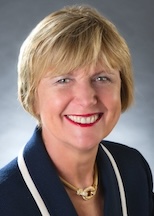
Suzanne Bakken, PhD
Alumni Professor of Nursing
Professor of Biomedical Informatics
Columbia University
Abstract
In this talk, Dr. Bakken will apply the Epistemic Injustice framework as a lens to examine the relevance of community engagement in health informatics and data science innovations and illustrate these concepts with examples from her program of research.
March 5 | Recent Advances in Learning Health Systems
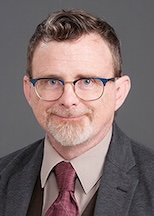
Tom Houston, MD, MPH
Vice Chair for Learning Health Systems
Professor of Internal Medicine
Wake Forest School of Medicine
Abstract
Dr. Houston will present a “Year-in-Review” style overview of emerging themes in the Learning Health Systems literature.
February 6 | Tobacco Dependence Treatment for Hospitalized Smokers: a Randomized Controlled Trial

Steve Bernstein, MD
Chief Research Officer
Dartmouth-Hitchcock Medical Center
Senior Associate Dean for Clinical & Translational Research
Professor of Emergency Medicine
Geisel School of Medicine at Dartmouth
Director, C. Everett Koop Institute
Abstract
Smokers usually abstain from tobacco while hospitalized but relapse after discharge. Inpatient interventions that persist after discharge may encourage sustained quitting. This talk will present the design, conduct, and results of a randomized trial of decision-support tools embedded in the electronic health record to encourage physicians to treat tobacco dependence in hospitalized adults. The study employed a Type 3 hybrid effectiveness-implementation design. A unique feature is that the physician was the unit of randomization. This study randomized 254 physicians and followed 1060 of their patients for one year after discharge. Both clinical and implementation endpoints will be presented, along with a discussion of the methodological challenges and opportunities in conducting studies randomized by provider.
December 5 | From Burnout to Benefit: Reimagining the Role of the EHR to Support Clinical Care
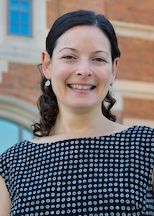
Julia Adler-Milstein, PhD
Professor
Chief, Division of Clinical Informatics & Digital Transformation
Director, Center for Clinical Informatics & Improvement Research
Department of Medicine, UCSF
Abstract
Widespread electronic health record (EHR) adoption has come with many unintended consequences. It is estimated that clinicians spend almost half their workday in the EHR and feel that a substantial portion of that work is not in service of better care.
A path forward involves understanding the nuanced relationship between EHRs and frontline clinician burden and burnout. Ultimately, we must understand how to preserve high-value uses of the EHR while removing those that are unnecessary and improving those that are inefficient. Fortunately, there are many levers available. In my talk, I will offer a current landscape of the relationship between EHRs and frontline clinician burnout and burden. I will then talk about specific opportunities to improve EHR-based work – examining common tasks such as chart review and documentation. Lastly, I will address EHR user log data as a key source of ongoing insights into current state EHR use and opportunities for improvement.
November 7 | Funding Learning Health System Research: Challenges and Strategies

Michael Harrison, PhD
Retired Senior Research Scientist, Agency for Healthcare Research and Quality

Amanda Borsky, PhD
Scientific Program Manager, Department of Veteran Affairs
Abstract
We examine funding challenges facing learning health system (LHS) programs, where research focuses on rapidly improving the health system’s internal operations and performance and solicit seminar participants’ experiences in addressing these challenges. Our presentation draws on semi-structured interviews with diverse respondents in five health systems. Although external, competitive, funding facilitated some internal improvement and learning, reliance on this type of funding challenged researchers’ responsiveness to concerns of system leaders, managers, and practitioners and constrained researchers’ responsiveness to system needs. Gaps between external funding requirements and internally-focused projects arose in objectives, practical applicability, audiences, timetables, routines, skill sets, and researchers’ careers. To contribute more directly to system improvement LHS researchers needed to collaborate with clinicians and other non-researchers and pivot between long research studies and shorter, dynamic improvement, evaluation, and data analysis projects. With support from system executives, LHS program leaders employed several strategies to enhance their researchers’ internal contributions. We report on these strategies and will ask for seminar participants’ experiences with LHS funding challenges.
October 3 | Economics and Value in a Learning Health System
Abstract
What is the value proposition? Interventions and innovations with convincingly demonstrated effectiveness may still face barriers to implementation and translation into clinical practice or policy without adequate economic evidence. Moreover, what is the intrinsic value to a health system of being engaged in learning and research activities? This talk will explore concepts and examples on these salient topics for learning health systems.
September 5, 2023 | Design and Evaluation of an Individualized Patient-Centered Decision Tool in a Learning Health System
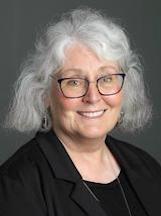
Patricia Franklin, MD, MBA, MPH
Professor, Departments of Medical Social Sciences, Orthopedics, and Rheumatology
Northwestern University Feinberg School of Medicine
Abstract
The Agency for Healthcare Quality and Research (AHRQ) defines a learning health system as a system in which internal data and experience are systematically integrated with external evidence, and that knowledge is put into practice. Typically, the clinician is the recipient of the 'knowledge' and is responsible for applying this information in practice. In contrast, we co-designed, implemented, and evaluated a patient-centered report to inform surgical decisions. First, we assembled a national cohort of knee and hip osteoarthritis patients who reported longitudinal patient-reported outcomes (PROs) and developed post-surgical outcome prediction models using these data. Next, with PCORI funding, patients and clinicians co-designed a decision support tool that includes key risk factors and tailored estimates of outcomes to inform decisions regarding the need for, and timing of surgery. Approximately 15,000 patients in 12 states completed a pre-visit self-assessment and received the Arthritis care through Shared Knowledge (A.S.K.) report for use at their office visit. Fifty percent of the report users agreed to complete 1, 6, and 12 month PROs to inform our evaluation of treatment decisions and tool use. The report also includes a decision grid summarizing key information about non-surgical treatment options. Together, the A.S.K. report exemplifies a learning health system that benefits patient and clinician care decisions.
August 1 | The Road to Inequity is Often Paved with Good Intentions
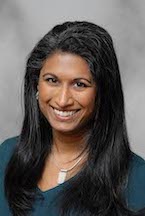
Taj Mustapha, MD
Chief of Equity Strategy, M Health Fairview
Assistant Dean, Diversity, Equity, and Inclusion
Associate Professor of Medicine, Division of Hospital Medicine
Assistant Professor, Department of Pediatrics
University of Minnesota
Abstract
Health equity researchers have uncovered disparities in infant and maternal mortality, survival after myocardial infarction, pain control for long bone fractures, vaccine administration, cancer screening, minimally-invasive versus radical surgical procedures, and more. However, those disparities remain. In fact, many times institutional efforts to address disparities have resulted in no change, or worse, increased disparities. While there are many reasons why inequities remain a stubborn problem, this talks explores how the best intentions in understanding and addressing inequity in research and quality and improvement can actually contribute to perpetuating inequity. The goals is to generate discussion about how equity research can account for and work to overcome these barriers.
June 6 | Engaging Clinicians in Quality and Value Improvement in a Learning Health System: Stanford's Experience
Abstract
Health systems are increasingly seeing benefits from embedding knowledge-generating scientific, informatics, incentive, and cultural tools into daily clinical practice to continuously improve healthcare. Clinicians are ideally positioned to help shape these efforts, given their position on the frontlines of clinical care where problems are identified and project implementation takes place. Medical training in the U.S. requires foundational QI skills but typically does not include substantive evaluation methods needed to formally assess QI initiatives. This is worrisome, as evaluations lacking methodological rigor can generate spurious conclusions and potentially harmful changes within a health system. To solve this challenge, some health systems have created ongoing clinician-researcher partnerships within a given clinical area or temporary project-based collaborations tasked with meeting organizational objectives. Dr. Stacie Vilendrer will describe a hybrid of these approaches, a formalized clinician-researcher partnership in its 5th year of operation at Stanford Medicine, which aims to enhance the evaluation of clinician-led QI efforts. This partnership supports clinician capacity building, knowledge dissemination through scholarship, and the health system's ability to implement changes informed by valid, reliable, and actionable evidence produced in real-world settings.
May 2 | Large Language Models to Understand Biomedical Text
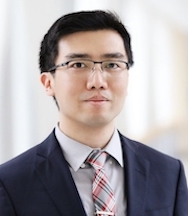
Yuan Luo, PhD
Director, Institute for Augmented Intelligence in Medicine – Center for Collaborative AI in Healthcare
Associate Professor of Preventive Medicine (Health and Biomedical Informatics), McCormick School of Engineering and Pediatrics
Abstract
Large Language Models such as transformer-based models have been wildly successful in setting state-of-the-art benchmarks on a broad range of natural language processing (NLP) tasks, including question answering (QA), document classification, machine translation, text summarization, and others. Recently, the release of OpenAI’s free tool ChatGPT demonstrated the ability of large language models to generate content, with anticipations on its possible uses and potential controversies. The ethical and acceptable boundaries of ChatGPT’s use in scientific writing remain unclear. He will talk about his group’s research on exploring large language models, e.g., long-sequence transformers and GPT style models, in the clinical and biomedical domains. Their work examines the adaptability of these large language models to a series of clinical NLP tasks including clinical inferencing, biomedical named entity recognition, EHR based question answering, clinical notes classification tasks etc.
April 4 | Patient-Centered Clinical Decision Support: What Have We Learned and Where Do We Go Next?
Abstract
Patient-centered clinical decision support (PC CDS) offers innovative ways to ensure that patient-specific, evidence-based clinical guidance is delivered to the right recipients, where and when they want to receive it, in a manner that is easy for them to understand and act upon. With the rapid evolution of the technology landscape, PC CDS has tremendous potential to improve patients’ lives and clinicians’ work experience by moving the point of clinical decision-making closer to patients and enhancing conversations within traditional healthcare settings. This presentation will share challenges and opportunities for advancing the design, development, implementation, and measurement of PC CDS.
March 7 | Training the Next Generation of Learning Health System Scientists: Challenges and Future Directions

Paula Lozano, MD, MPH
Senior Investigator, Kaiser Permanente Washington Health Research Institute
Director, Center for Accelerating Care Transformation
Senior Associate Medical Director for Research and Translation, Washington Permanente Medical Group
Abstract
The learning health system (LHS) concept holds promise for the transformation of health care but has yet to deliver at scale. Many challenges remain in creating sustainable research-health care partnerships and in training and supporting LHS scientists. Dr. Lozano will discuss lessons learned across 11 AHRQ-PCORI funded centers of excellence that have trained more than 100 LHS scientists since 2018. Participants will be encouraged to share their insights during the discussion.
February 7 | Computable Phenotyping in Pragmatic Clinical Trials and Learning Health Systems
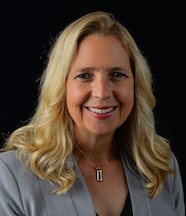
Rachel Richesson, PhD, MPH, MS
Professor of Learning Health Sciences, University of Michigan Medical School
Abstract
Learning Health Systems thrive with use of real-world data from electronic health record (EHR) systems in both observational and interventional research to generate real-world evidence. Computable phenotypes are specified definitions that can be used to identify patients with particular clinical conditions through computerized queries to EHR systems or data repositories using defined data elements, codes, and logical expressions. Computable phenotypes can facilitate research and learning by supporting the identification of patient populations, the delivery of clinical interventions, and the assessment of outcomes. The sharing and re-use of computable phenotypes can enhance the efficiency of pragmatic research and the dissemination of evidence-based interventions into real-world settings. This talk will discuss current platforms for identifying existing computational phenotypes as well as challenges and strategies for their implementation and validation in learning health systems.
December 6 | Learning Through Spread: Evaluating Community Health Improvement Initiatives in 20 Communities in the U.S.
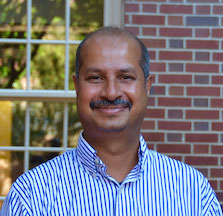
Rohit Ramaswamy, PhD, MPH
Professor of Pediatrics and co-Director of research at the James M. Anderson Center for Health Systems Excellence
Abstract
Community Health Improvement initiatives involve multi-faceted interventions in heterogeneous settings. Evaluations focusing on just the effectiveness of such initiatives have yielded inconclusive results. Developmental evaluation approaches that gather information routinely over time and feed it back for learning and improvement have been suggested as more suitable for use in complex settings. This talk describes a collaborative formative and summative evaluation of a Robert Wood Johnson Foundation funded national health improvement program called SCALE (Scaling Community Accelerators through Learning and Evaluation) using a developmental evaluation approach. The formative evaluation used a combination of observation, inquiry and reflection to identify opportunities to improve the implementation of the program. The summative evaluation involved a structured process of data synthesis carried out with the communities. Together, the evaluations helped to gain knowledge on common pathways for improvement and change, and to identify factors that accelerated and impeded the process of transformation in communities. This talk will describe the program, the evaluation questions, the approach used, the findings and the lessons learned.
November 1 | Data-driven learning health system @ OHSU: From shared governance to pragmatic trials

David Dorr, MD, MS
Chief Research Information Officer
Professor and Vice Chair, Department of Medical Informatics & Clinical Epidemiology
Professor, General Internal Medicine and Geriatrics
Oregon Health & Science University
Abstract
We will explore the journey to a learning health system from the informatics perspective. This will include: establishing cross mission priorities, standing up governance, and supporting innovation across the spectrum of needs.
Special Edition | October 6 | Notes from the Field - the HPRN Practice-Based Research Network

Linda Zittleman, MSPH
Senior Instructor, Department of Family Medicine; Co-Director, High Plains Research Network, University of Colorado School of Medicine
Abstract
This presentation will provide an overview of the High Plains Research Network (HPRN), a practice-based research network in rural eastern Colorado. The talk will offer a description of the network's origins, structure, staff and infrastructure, and efforts to engage and partner with local community members. Select projects will be featured to illustrate the types of projects and funding sources over its 25 year history - and the impact on the delivery of primary care and the health in the HPRN region.
October 4 | Supporting Clinical and Translational Researchers with Electronic Patient Data
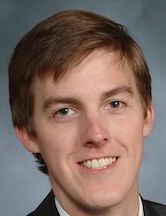
Thomas Campion, PhD
Associate Professor of Population Health Sciences
Chief Research Informatics Officer
Weill Cornell Medicine
Abstract
Thomas R. Campion, Jr., Ph.D. leads Weill Cornell Medicine's efforts to support clinical and translational investigators with electronic patient data, especially through the secondary use of electronic health record (EHR) data. Dr. Campion is Associate Professor of Research in Population Health Sciences in the Division of Health Informatics. As Chief Research Informatics Officer in the Information Technologies & Services Department (ITS) and Office of the Senior Associate Dean for Clinical Research as well as Director of Biomedical Informatics in the Clinical & Translational Science Center (CTSC), he leads the Architecture for Research Computing in Health (ARCH) program, which matches scientists with tools and services for obtaining electronic patient data. His research interests include electronic infrastructure to support clinical and translational scientists, measurement of the biomedical research enterprise, computable phenotyping, clinical decision support, health information exchange, and organizational issues in informatics. He earned a master of science and doctor of philosophy in biomedical informatics from Vanderbilt University and a bachelor of arts in organizational studies and German from the University of Michigan.
September 6 | Building a Highly Reliable, Learning Health System @ UC San Diego
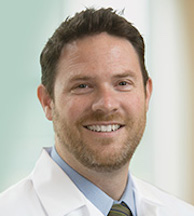
Chris Longhurst, MD, MS
Chief Medical Officer; Chief Digital Officer; Associate Dean, UC San Diego School of Medicine
Abstract
The healthcare informatics landscape is changing rapidly and the COVID pandemic accelerated digital health trends like virtual care, remote patient monitoring, and AI-enabled clinical decision support. In this presentation, Dr. Chris Longhurst, Chief Medical and Digital Officer at UC San Diego Health, will share how these tools can support the journey to a highly reliable learning health system.
August 2 | Perspectives on the Public Health Informatics Landscape via a Learning Health System Lens
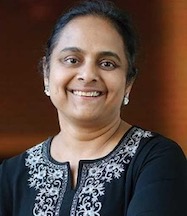
Sripriya Rajamani, MBBS, PhD, MPH, FAMIA
Clinical Associate Professor, School of Nursing
Affiliate Faculty, Institute for Health Informatics, University of Minnesota
Informatics Consultant, Minnesota Department of Health
Abstract
The COVID-19 pandemic has highlighted the critical role of public health and underscored the need for a robust public health information infrastructure supported by an informatics-savvy workforce. This presentation will present an overview of the field of public health informatics, highlight select public/population health informatics projects and potential alignment with Learning Health Systems (LHS). The current state of public health informatics workforce including needs to build capacity and diversity and exciting initiatives to improve this, including a recent federally funded informatics training grant will be covered. Ultimately, bringing an LHS framework to public health and strong supporting informatics brings opportunities for new collaborations, including in large part traditional academic-practice partnerships but also partnerships with other stakeholders including community, industry and payer partnerships.
July 5 | Building Health Data Services for Data Science and Artificial Intelligence Research Impact
Abstract
As interest in data science applications in health has grown, so has demand for findable, accessible, interoperable, and reusable (FAIR) real-world health data for research. To meet this demand, academic health center information technology (IT) and informatics organizations are tasked with finding new and novel approaches to delivering research data services. In this talk, I will share a conceptual framework that we are applying to research data service operations at the University of Florida (UF) Health. The framework derives from operations management approaches to successfully breaking the tradeoff between efficiency and service in the face of customer-introduced variability. I will discuss our ongoing local efforts to effectively serve trainees and research teams that have a wide range of disciplinary backgrounds, data science skills, and application domain interests.
Do you have an idea for a future iMpact seminar speaker or topic? Share your suggestions in our short survey.
